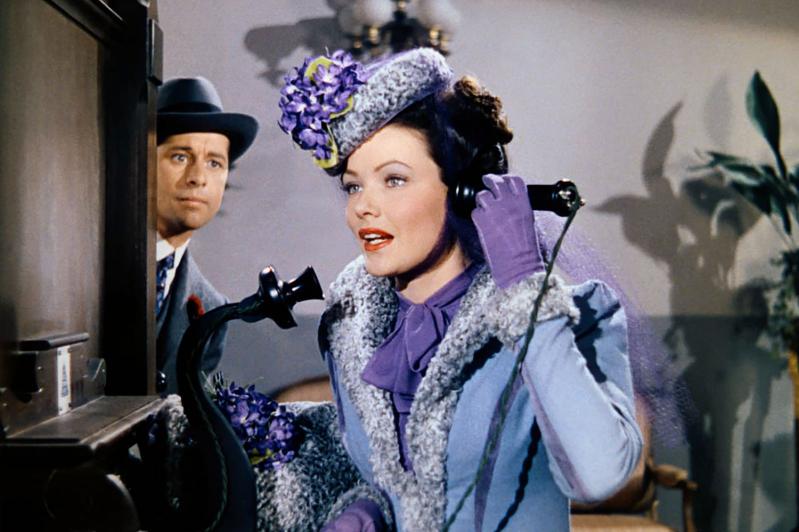Of Ernst Lubitsch, the German-born filmmaker who relocated to Hollywood in 1922, Martin Scorsese has said, “Everything in a Lubitsch film counts: every gesture, every word, every design choice for every set, every angle, every second.”
“A Touch of Lubitsch,” seven classic comedies from the 1930s and ᾿40s, will open Friday at the Sag Harbor Cinema and continue through next Thursday, offering filmgoers a chance to see what led Orson Welles to call the filmmaker a “giant” whose “talent and originality were stupefying.”
“Venice, Paris, London, Budapest, Warsaw . . . I wanted this small selection of Lubitsch’s comedies to reflect how he had recreated in Hollywood a fantasy version of the world he had left behind,” said Giulia D’Agnolo Vallan, the cinema’s founding artistic director. “To this day, Lubitsch remains revered among his peers.”
The series will kick off Friday at 5 p.m. with “Trouble in Paradise” (1932), which will be followed at 7 by “Ninotchka” (1939). “Trouble in Paradise” stars Herbert Marshall as Gaston, a thief, and Miriam Hopkins as Lily, a pickpocket, who embark on a scam to rob Mme. Colet (Kay Francis), a perfume company executive. Things take a turn when Gaston becomes romantically entangled with Mme. Colet and he must choose between two women. The film is loaded with “sparkling dialogue, witty innuendo, and elegant comic invention,” according to the cinema.
Co-written by Billy Wilder, “Ninotchka” stars Greta Garbo as a Soviet diplomat in Paris tasked with the sale of jewels seized from Russian aristocrats. But Count Leon d’Algout (Melvyn Douglas) tries to intercept the valuables on behalf of a former owner. For her performance, Garbo received her fourth nomination for a best actress Academy Award. “Ninotchka” was her penultimate film.

Adapted from a Noel Coward play, “Design for Living” (1933) stars Gary Cooper as George, a painter, and Fredric March as Thomas, a playwright, two Americans sharing a Paris apartment. Miriam Hopkins plays a commercial artist unable or unwilling to choose between the two suitors. The pre-Code comedy is both “debonair and racy,” according to the cinema.
Just a week after their appearance in “The Mortal Storm,” Jimmy Stewart and Margaret Sullavan return to the cinema in “The Shop Around the Corner,” as employees of a gift shop in Budapest. The workplace romance is based on Miklos Laszlo’s 1937 play “Parfumerie,” whose story line was later used in Buster Keaton’s “In the Good Old Summertime” (1949) and Nora Ephron’s “You’ve Got Mail” (1998).
Hitler’s Germany is the target of Lubitsch’s subversive political satire “To Be or Not to Be” (1942), which stars Jack Benny and Carole Lombard as husband-and-wife actors in Nazi-occupied Poland who become involved in a plot to track down a German spy. Released three years after Hitler’s invasion of Poland, it proved controversial at the time for its daring humor.
“Cluny Brown” (1946), the last film Lubitsch completed, stars Jennifer Jones as a parlor maid at a stuffy English manor, and Charles Boyer as an eccentric European exile who has fled the Nazis but is worried about where his next meal will come from. The film is a farce that sends up British class hierarchy with the director’s typical light touch.
The series will close with “Heaven Can Wait” (1943), a supernatural comedy in which Henry Van Cleve (Don Ameche), after a lifetime of philandering, asks Satan for permission to enter through the gates of hell, insisting that his sins qualify him for damnation. The film was nominated for best picture and best director Academy Awards.
Wilder deserves the last word: “Ernst Lubitsch could do more with a closed door than most of today’s directors can do with an open fly.”
Each of the films plays twice. While tickets are available for individual films, “Grand Tour” passes are available for $55, or $30 for members, and permit pass holders to attend each film once.




